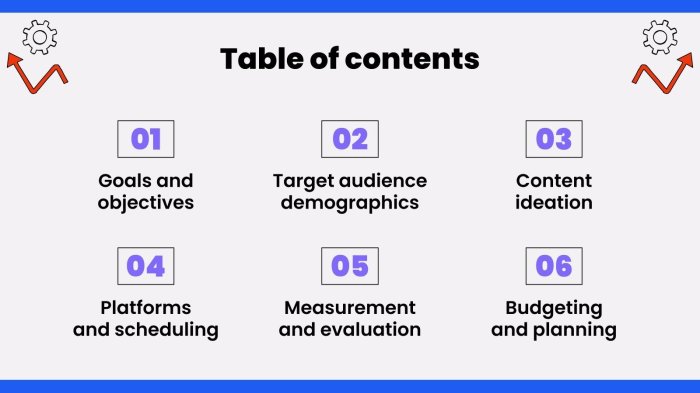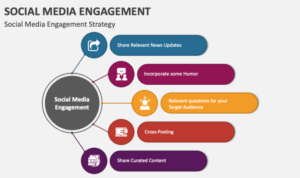Using Social Media Analytics for Strategy opens up a world of possibilities, where data becomes the key to unlocking success in the digital realm. Dive into this dynamic landscape where insights drive decisions and strategies shape the future.
From understanding audience behavior to outsmarting competitors, this journey through social media analytics is a game-changer for businesses looking to stay ahead of the curve. Get ready to explore the untapped potential of data-driven strategies like never before.
Introduction to Social Media Analytics
Social media analytics is the process of gathering and analyzing data from social media platforms to make informed business decisions.
Importance of Social Media Analytics for Businesses
Social media analytics is crucial for businesses to understand their audience, track their performance, and optimize their social media strategies.
Examples of Popular Social Media Analytics Tools
- Sprout Social
- Hootsuite
- Google Analytics
Types of Data Analyzed through Social Media Analytics
Social media analytics can analyze various types of data, including:
- Engagement metrics such as likes, shares, comments
- Audience demographics like age, gender, location
- Content performance to identify top-performing posts
- Competitor analysis to compare performance with industry rivals
Benefits of Using Social Media Analytics

Social media analytics offer numerous advantages for businesses looking to enhance their marketing strategies and customer engagement. By leveraging data insights from social media platforms, companies can gain a deeper understanding of their target audiences, improve their marketing campaigns, track competitors’ activities, and enhance customer service.
Understanding Target Audiences
- Social media analytics provide valuable demographic and behavioral data about target audiences.
- By analyzing engagement metrics, businesses can tailor content to better resonate with their audience’s preferences.
- Understanding audience interests and behaviors helps in creating more targeted and effective marketing campaigns.
Improving Marketing Strategies
- Social media analytics enable businesses to measure the effectiveness of their marketing efforts in real-time.
- By tracking key metrics like reach, engagement, and conversion rates, companies can optimize their strategies for better results.
- Identifying trends and patterns from analytics data helps in making data-driven decisions for future campaigns.
Tracking Competitors’ Activities
- Social media analytics allow businesses to monitor competitors’ social media presence and performance.
- By benchmarking against competitors, companies can identify areas for improvement and stay ahead in the market.
- Tracking competitor strategies helps in identifying new opportunities and avoiding potential pitfalls.
Improving Customer Service
- Social media analytics provide insights into customer feedback, sentiments, and preferences.
- By analyzing customer interactions on social media, businesses can address issues proactively and enhance customer satisfaction.
- Personalizing customer service based on analytics data leads to better relationships and loyalty with customers.
Strategies for Utilizing Social Media Analytics: Using Social Media Analytics For Strategy

Businesses can leverage social media analytics in various ways to improve their strategies and decision-making processes.
Enhancing Content Performance
- By analyzing social media metrics such as engagement rates, click-through rates, and audience demographics, businesses can gain insights into what type of content resonates with their followers.
- Using these insights, companies can create more targeted and relevant content that is likely to perform better and drive higher engagement levels.
Guiding Product Development
- Social media analytics can provide valuable feedback on customer preferences, opinions, and trends related to products or services.
- By monitoring conversations and sentiment around their brand, businesses can identify areas for improvement or new product ideas based on consumer feedback.
Informing Influencer Marketing Decisions
- Through social media analytics, companies can identify influencers who have the most impact on their target audience and are aligned with their brand values.
- By partnering with the right influencers, businesses can reach a larger audience, build credibility, and drive brand awareness and engagement.
Role in Crisis Management
- Social media analytics play a crucial role in monitoring and managing crises by tracking conversations, sentiment, and emerging issues in real-time.
- By promptly identifying and addressing negative feedback or issues, businesses can mitigate reputational damage and respond effectively to crisis situations.
Challenges in Implementing Social Media Analytics
Implementing social media analytics in a business setting comes with its own set of challenges that organizations need to navigate. From data privacy concerns to overcoming limitations and ethical considerations, there are various obstacles to address in order to effectively leverage social media analytics for strategic decision-making.
Data Privacy and Security
One of the primary challenges in implementing social media analytics is ensuring data privacy and security. With the vast amount of personal information available on social media platforms, businesses need to be mindful of how they collect, store, and analyze data to protect the privacy of their users.
Overcoming Limitations
Another challenge is overcoming the limitations of social media analytics tools. While these tools can provide valuable insights, they may not always capture the full scope of data or provide accurate predictions. Organizations need to supplement these tools with other data sources and analytical methods to ensure a comprehensive understanding of social media trends.
Ethical Considerations, Using Social Media Analytics for Strategy
There are also ethical considerations to take into account when using social media analytics for strategy. Businesses must be transparent about how they collect and use data, and ensure that their practices align with ethical standards. This includes being mindful of issues such as data bias, discrimination, and the potential impact on user trust.





